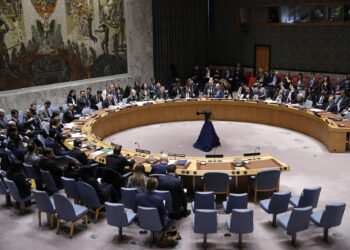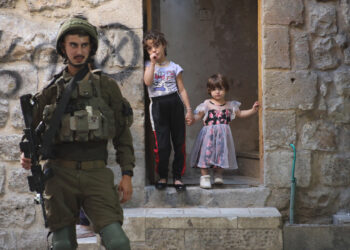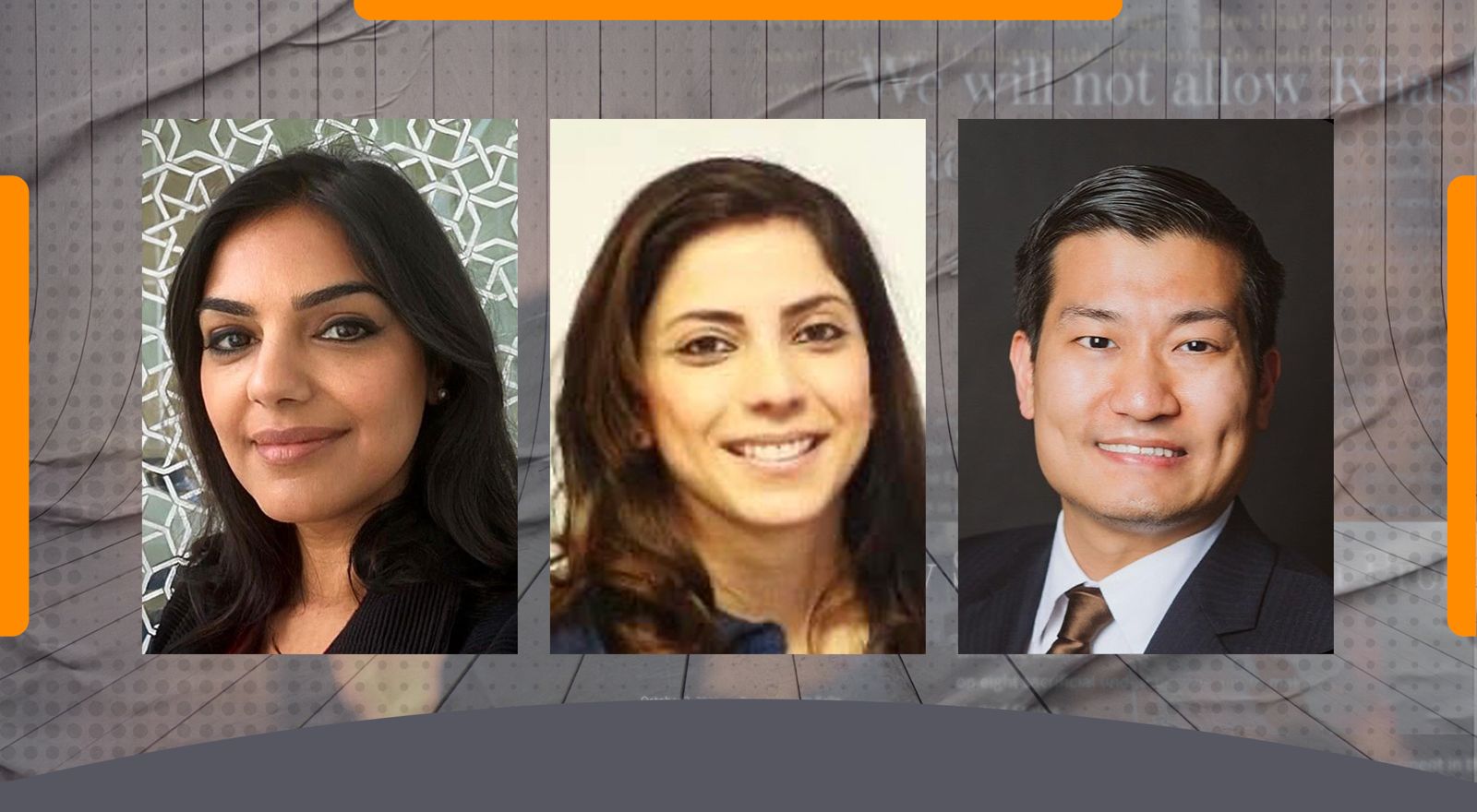Yassin al-Haj Saleh, a Syrian writer and political dissident, is a DAWN fellow.
عربی
Before the Syrian uprising ten years ago, there was a scarcity of literature by Syrians about the country during the long decades of the Assad family rule. No doubt, this scarcity in cognitive representation derived from the void in political representation, especially during the decades of the 1980's and 1990's, a brutal and bloody period in the country's history.
Prison literature stands out as a macabre exception to this scarcity, and a distinct achievement of many Syrians. During that period, as the Assad regime detained thousands for the peaceful expression of their views, prison became a basic political institution, and political detention became a general national experience. Indeed, the decade preceding the Syrian revolution saw the emergence of a small library of texts and books written by Syrians who portrayed their experiences of detention, torture, and political imprisonment.
These former prisoners, including Mustafa Khalifa, Hassiba Abd al-Rahman, May al-Hafez, Aram Karabet, Louay Hussein, Rateb Shabu, Faraj Bayraktar, Heba al-Dabbagh, Malek Daghistani, Bara al-Sarraj, Abbas Abbas, Ma'bad al-Hassoun, Mohammed Berro, recounted their personal ordeals while also depicting general conditions faced by other detainees. In the process, these former prisoners provided a representation of the soul of Syria in all its deprivation and horror.
In giving a voice to our prison experiences, we Syrians sometimes thought of our struggles in the context of similar experiences of other prisoners from different times and places, including those closest to us in Iraq, Egypt, Morocco, and even farther in Eastern Europe. But they were rather in the background, with no names and details. The truth is that, after long years in jail, we did not have the tools or energy for that kind of comparison.
It was all we could do to resist our own internal demons and the forced silence in the memories of our own suffering. There is a logic behind this: the wounded focuses on his wound, whether the wound is in the body or the soul, and all his or her energy is directed towards taking care of herself or himself.
During the struggle to survive and recover, some former prisoners fall in love with their wounds because this gives them a story, and it is compatible with self-care. Indeed, most of us prisoners experience some degree of the narcissism of the wounded, unable to tear our gaze away from what happened to us and to focus on the experiences of others.
While many states and substate actors intervened in Syria, including religious "internationals," such as global Sunni Jihadism, Shiite jihadism under the supervision of Iran, and even Christian groups coming from Europe and supporting the regime, millions fled the horror of the civil war. Indeed, roughly 30% of Syrians entered the diaspora, a community of survivors and exiles.
This diaspora is one of several universal aspects of the Syrian experience that connects us across time and place to other communities that have undergone similar devastation and exoduses. We share other universal characteristics with these communities, including enduring the extremes of the human experience, such as torture, murder, rape, destruction of civilian areas, displacement, forced disappearances, which push us to redefine the human being and humanity.
As we Syrians scatter across the world, we need to learn and listen to the stories of other genocides to better understand our own experiences and the human condition in all its extremes. Our presence in the diaspora, especially in the West, makes this easier. While we are international to this extent, we cannot continue to exclusively focus on our plight, as if Syria is an independent planet or an isolated island.
In order to faithfully understand and represent our own experiences, we must not ignore the Holocaust, the Cambodian or Rwandan genocide, the ethnic cleansing in the former Yugoslavia, the Uyghur Muslims in China, or the Rohingya in Myanmar. Everything that is tragic in the world concerns us and we have a stake in it.
The Holocaust provides different lessons, as a reference point for our own experiences, but also as a lesson in the misuse of history and a word. On the one hand, the Holocaust was a major genocide that is unique in many ways. Extensive literature about the Jewish genocide, including first-hand accounts of survivors, provide a valuable source for us to think about the Syrian genocide.
We lose morally and ethically by ignoring it or not giving it the attention it deserves. On the other hand, the Holocaust has often been used to legitimize a state, Israel, that is fundamentally based on discrimination and political extermination of the Palestinians. This duality requires other victims of political genocide, like the Syrians, to object both to denying the Holocaust and to its misuse.
The Khmer Rouges' Cambodia teaches us important things about the madness of ethnic or national identity twisted and riven by colonial experiences with stronger neighbors, in this case, the Vietnamese and Chinese. From the crazy rural utopia imposed by the Khmer Rouge, one learns that groups can become as maniacal as individuals, and ethnicities as maniacal as religions.
We can also learn lessons from the story of the Rwandan genocide, which bears convergences and contrasts with the Syrian genocide, including the role of colonial anthropology in hardening social or cultural differences and transforming them into violence and mayhem. Such a hardening occurred in Syria, where civil groups with limited differences transformed themselves into distinct peoples. In both, the cases of Rwanda and Syria, political and social privileges played a key role in twisting people's identities and setting them at war with each other.
The examples of the Rohingya and the Uyghurs highlight the fact that terrorism and the war on terror, which has been the narrative of the world-dominant powerful countries for at least two decades, have become too often a pretext to justify the extermination of the weak, a pretext that has been employed by the powers that be in Syria to justify wholesale slaughter.
We Syrians must understand that while our tragedy is enormous, it is not exceptional in any way. Indeed, worse happened to other peoples. It is equally important that we tell the world about the peculiarities and distinct details of our experience and our destruction. This necessitates a multi-faceted analysis of our history, society, and politics, especially regarding the genocidal formation of Assad's rule. It is a formation that is still not systematically studied or understood.
Most commentators describe the Assad regime in general terms that are not valid, such as tyranny, dictatorship, authoritarianism, or even totalitarianism, ignoring its genocidal streak. Moreover, informing ourselves about what happened to others in the world and informing the world about what happened to us would put us in a more appropriate position to be part of a discussion about the future of our country and the world that is, unfortunately, moving fast with open eyes towards a major crisis.
We Syrians, drawing on our own experience, might well have advice for the world on how to recognize, to name and to stop a genocide like ours that, despite extensive documentation, became invisible, subsumed under and subordinate to the "war on terrorism."
The diaspora condition, by definition, means that we are both Syrians and international which enables us, despite the difficulties, to talk to Syria about the world and talk to the world about Syria. There are no universal countries or universal cultures. There are countries in the universe and cultures in the universe. But the diaspora is the most universal condition that is transnational and transcultural.
Therefore, those whose identity derives from the diaspora condition occupy, in principle, the most appropriate position to speak to the world. In order to speak with insight and power, we Syrians who live in the diaspora need to expand our knowledge of the world we live in and to adapt to it. This will take time and effort, but today we are in a situation similar to that of those who have been prisoners among us for a long time: we are working to create the best possible of a bad situation.
The complaint has been repeated for years among Syrians that the Syrian issue is less present in the news. The implicit assumption behind this is that the presence of Syria in the news would make the Syrians and their cause more visible. Maybe.
But whether Syria is present in the news or not, it is time for us to think and act strategically; to have our cause present in culture: in thought, art, literature, humanities, and philosophy. This is a slower and less dramatic process that is already being strongly resisted in countries that display increasing cultural hardening, such as the Western countries. But we must overcome the hardening in order to place our experience in the larger framework of human existence.
Moving to culture requires working on placing our cause in a broader framework and learning how to develop comparative approaches to our history. Above all, we need to master the diasporic condition as a critical navigation between our two predicates: Syrian and international.
Photo caption: Refugees from Syria and Iraq disembark a Greek coast guard vessel that picked them up at sea, in Mytilene, on the Greek island of Lesbos, Feb. 27, 2016. (Photo by Etienne De Malglaive/Getty Images)






































